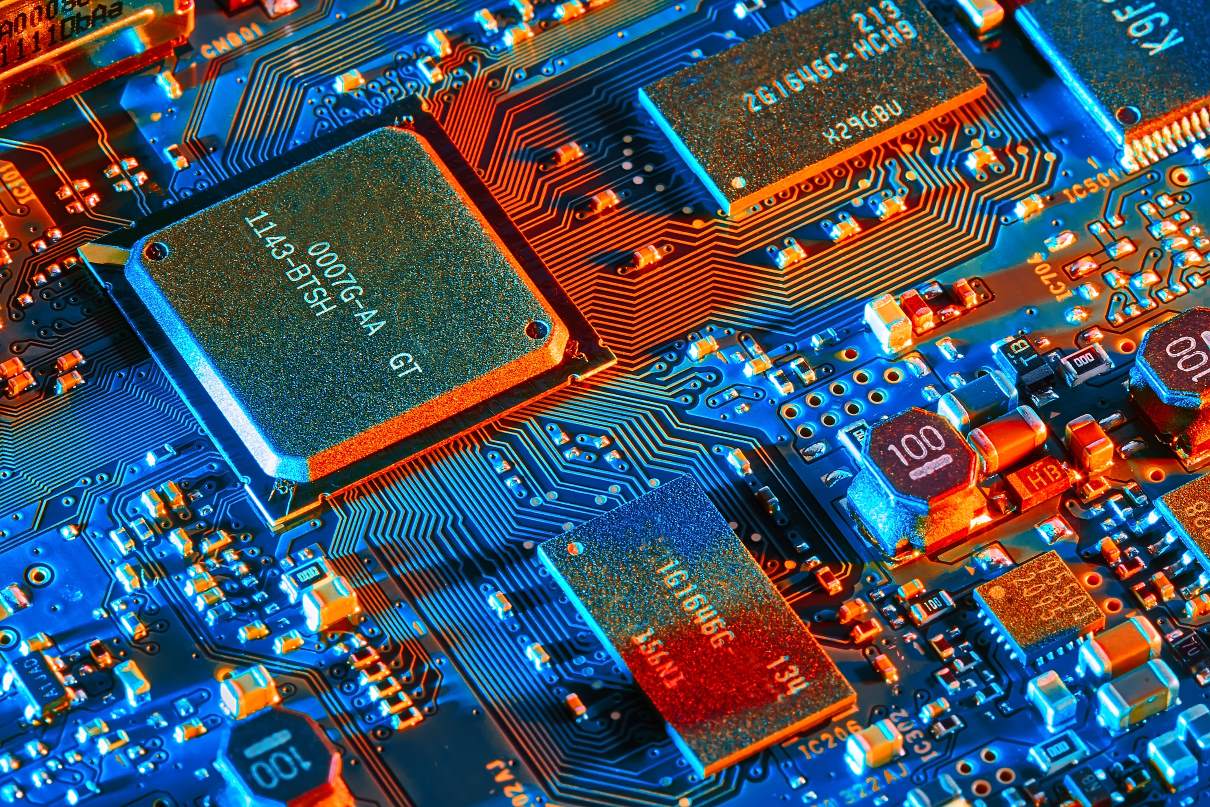
Integrated circuits, commonly known as ICs or microchips, have revolutionized the world of electronics and played a pivotal role in shaping modern technology. These tiny electronic devices are the building blocks of various electronic devices we rely on daily, from smartphones and computers to automobiles and medical equipment. With their compact size and incredible functionality, integrated circuits have made it possible to pack billions of transistors onto a single chip, allowing for unprecedented levels of computational power and performance.
In this article, we delve into the fascinating world of integrated circuits and uncover eight astounding facts that highlight their significance and impact. From their humble beginnings to their remarkable potential, these facts shed light on the incredible advancements and innovations made possible by these miniature marvels. Join us as we explore the inner workings and mind-boggling capabilities of integrated circuits and gain a deeper appreciation for the technology that powers our modern world.
Key Takeaways:
- Integrated circuits are tiny but powerful devices that changed the world by making electronics smaller, faster, and more efficient, revolutionizing industries and fueling innovation.
- Integrated circuits are like the superheroes of technology, powering everything from smartphones to space missions, revolutionizing healthcare, and making technology more affordable and accessible for everyone.
The Integrated Circuit Revolutionized the Electronics Industry
The integrated circuit, also known as a microchip, is a tiny electronic device that has had a profound impact on the world. It revolutionized the electronics industry by compacting multiple electronic components onto a single chip, making devices smaller, faster, and more efficient.
The First Integrated Circuit was Developed in 1958
In 1958, Jack Kilby of Texas Instruments and Robert Noyce of Fairchild Semiconductor independently developed the first integrated circuit. This groundbreaking invention paved the way for modern electronics and set the stage for the digital revolution.
An Integrated Circuit Can Contain Billions of Transistors
Thanks to advancements in technology, today’s integrated circuits can contain billions of transistors. These tiny semiconductor devices act as switches, controlling the flow of electrical current within the circuit and enabling complex computations and operations.
Integrated Circuits Power Our Modern Devices
From smartphones and laptops to cars and satellites, integrated circuits power a vast array of modern devices. They are the backbone of the digital age, allowing for the development of cutting-edge technology and fueling innovation in various industries.
Integrated Circuits Have Revolutionized the Medical Field
The use of integrated circuits in medical devices has revolutionized healthcare. They enable precise monitoring and control in devices such as pacemakers, insulin pumps, and diagnostic equipment, enhancing patient care and improving medical outcomes.
Integrated Circuits Play a Crucial Role in Space Exploration
Integrated circuits are vital in space exploration missions. They provide the necessary computing power for spacecraft to gather and transmit data, control navigation systems, and execute complex operations in extreme conditions.
Integrated Circuits Have Reduced Costs and Increased Accessibility
The mass production and miniaturization of integrated circuits have significantly reduced costs and increased accessibility to technology. This has allowed for the widespread adoption of electronics in various sectors, benefiting individuals and industries alike.
Advancements in Integrated Circuits Continue to Push the Boundaries
As technology advances, integrated circuits continue to evolve. Miniaturization, increased processing power, and energy efficiency are ongoing areas of research and development, paving the way for even more astounding innovations in the future.
Conclusion
In conclusion, integrated circuits have revolutionized the field of electronics with their compactness and efficiency. These tiny marvels have paved the way for the development of smaller and more powerful devices, from smartphones to medical equipment. Their ability to integrate multiple components onto a single chip has not only increased performance but also reduced costs and energy consumption. Integrated circuits have truly transformed our lives by enabling us to connect, communicate, and access information like never before. As technology continues to advance, we can expect integrated circuits to play an even more significant role in shaping the future of electronics.
FAQs
1. What is an integrated circuit?
An integrated circuit, also known as a microchip or IC, is a tiny electronic device that consists of a collection of interconnected electronic components such as transistors, resistors, and capacitors. It is designed to perform specific functions and is encapsulated in a protective package.
2. How are integrated circuits made?
Integrated circuits are made using a process called photolithography. It involves creating a pattern on a silicon wafer by applying a photosensitive material and then using light exposure to transfer the pattern onto the wafer. This process is repeated multiple times to create the different layers and components of the integrated circuit.
3. What are the advantages of integrated circuits?
Integrated circuits offer numerous advantages such as compact size, low power consumption, high reliability, and improved performance. They also enable the development of advanced features and functionalities in electronic devices while reducing manufacturing costs.
4. Can integrated circuits be repaired?
In most cases, integrated circuits cannot be repaired. If a chip is faulty, it is usually more cost-effective to replace it with a new working one rather than attempting to repair it. However, there are some specialized techniques used for repairing certain types of integrated circuits in specific applications.
5. Are integrated circuits only used in electronics?
No, integrated circuits are not limited to the field of electronics. They are also used in various other industries such as automotive, aerospace, telecommunications, and healthcare. Integrated circuits have become essential components in a wide range of applications due to their versatility and reliability.
Integrated circuits have revolutionized our world, powering devices from smartphones to space exploration. Their incredible capabilities and ever-growing potential continue to astound us. If you're curious about how these tiny marvels work and want to explore the world of electronics hands-on, consider trying your hand at an electronics kit. You'll gain a deeper understanding of the technology that surrounds us and maybe even spark a lifelong passion for innovation.
Was this page helpful?
Our commitment to delivering trustworthy and engaging content is at the heart of what we do. Each fact on our site is contributed by real users like you, bringing a wealth of diverse insights and information. To ensure the highest standards of accuracy and reliability, our dedicated editors meticulously review each submission. This process guarantees that the facts we share are not only fascinating but also credible. Trust in our commitment to quality and authenticity as you explore and learn with us.


